Cupcakes can be deceiving. Some people consider them easier to bake than layered cakes, but they’re also difficult to troubleshoot -- especially when it comes to a dry cupcake. There are a few reasons cupcakes dry out during baking -- baking time, temperature and storage issues to name a few. If you have dried out cupcakes, but need to use them, fill them with a fruit or custard filling and a medium-consistency buttercream to help soften the crumb and counteract the dryness.
Measuring
Cupcake recipes require as much precision as cake recipes. Each ingredient serves a purpose and inconsistent measuring can change the end result. One common cause for a dry cupcake is too much flour. So, measure flour carefully and level off the top of your measuring cup with a knife or long spatula. Too much sugar also can result in dry, crumbly cupcakes. The same goes for too little liquid. Avoid cutting down on liquids, especially eggs and oil, because these leave you with a dry cupcake.
Substitutions
A cupcake recipe calls for ingredients for a reason. Some types of cupcake recipes require milk, sour cream or buttermilk for the liquid. The same goes for oil, butter or shortening. Substituting the fats and liquids inappropriately can result in a dry cupcake or one that might not have the same tender crumb associated with the recipe. So, avoid substituting water for oil in a recipe or using a butter substitute in place of real butter.
Mixing
Beating times in a recipe are important -- they incorporate the right amount of air and allow ingredients to meld together. Follow the recipe's suggested beating time closely. Overbeating egg whites can dry out your cupcakes, because eggs whites act as drying agents in batter. Overmixing and undermixing cupcake batter creates a crumbly texture. Avoid this by carefully mixing your batter and using a spatula to scrape the sides and incorporate the ingredients properly.
Overbaking
Overbaking cupcakes makes them dry and crumbly -- and in some cases, the bottoms of your cupcakes may become scorched and stick to the cupcake liner. High temperatures bake cupcakes faster but result in a dry texture. To avoid this, set your oven temperature according to the recipe's recommendation. Test the doneness by inserting a toothpick into one cupcake's center two minutes before the batch is supposed to be done. If it lifts out with a few crumbs, take the cupcakes out of the oven. If your toothpick comes up clean, your cupcakes are overdone.
Storing
Even the most tender, moist cupcake can dry out if you don’t store it properly. Store cupcakes for two days at room temperature in an airtight container. You can keep them for up to seven days in the refrigerator, but use an airtight container to keep them from drying out. If your cupcakes are filled with a dairy-based filling or topped with a dairy-based frosting, they’ll keep for two days at room temperature in an airtight container or in the refrigerator for seven days. Leaving cupcakes unwrapped on the counter or uncovered in the refrigerator makes them dry and turn stale.
Related Articles

What Causes Dry & Hard Muffins?
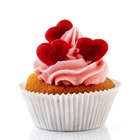
Tips on Baking Moist Cupcakes From ...
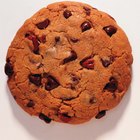
Is Butter or Shortening Better for Soft ...
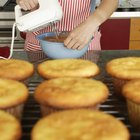
Can You Use Applesauce in Place of ...
Can Dry Pudding Be Added to Cake Mixes?
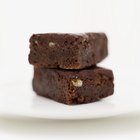
Altitude Tips for Baking Brownies

Why Is My Cake Dry & Crumbly?
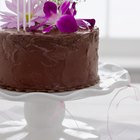
How to Bake a Cake: A Step-By-Step Guide

What if You Forget to Put Eggs Into ...
How to Bake Cupcakes With Mayo Instead ...
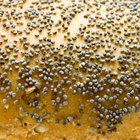
If I Double the Ingredients, Do I ...

What Kind of Flour to Use for Cupcakes?

What Happens When You Forget to Put ...
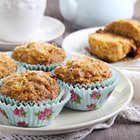
How to Substitute Applesauce for Oil in ...

What Are the Causes of Pie & Pastry ...

Softened vs. Melted Butter When Baking

Can You Use Butter Instead of Cooking ...
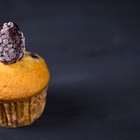
What Causes Cupcakes to Fall?
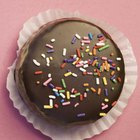
How to Thicken Cake Batter
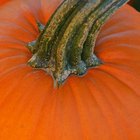
How to Make Pumpkin Bread Moist
References
Writer Bio
Shailynn Krow began writing professionally in 2002. She has contributed articles on food, weddings, travel, human resources/management and parenting to numerous online and offline publications. Krow holds a Bachelor of Science in psychology from the University of California, Los Angeles and an Associate of Science in pastry arts from the International Culinary Institute of America.